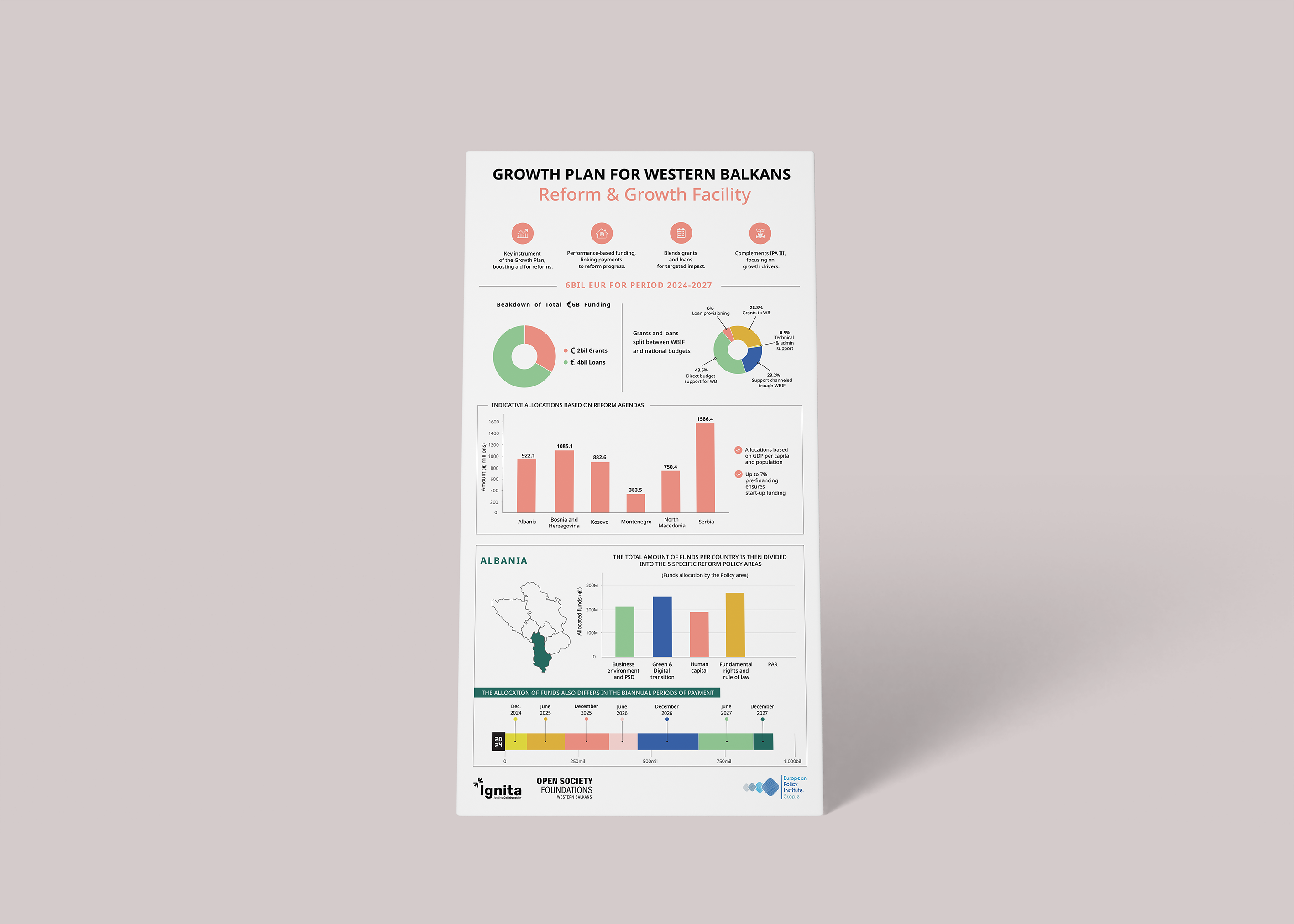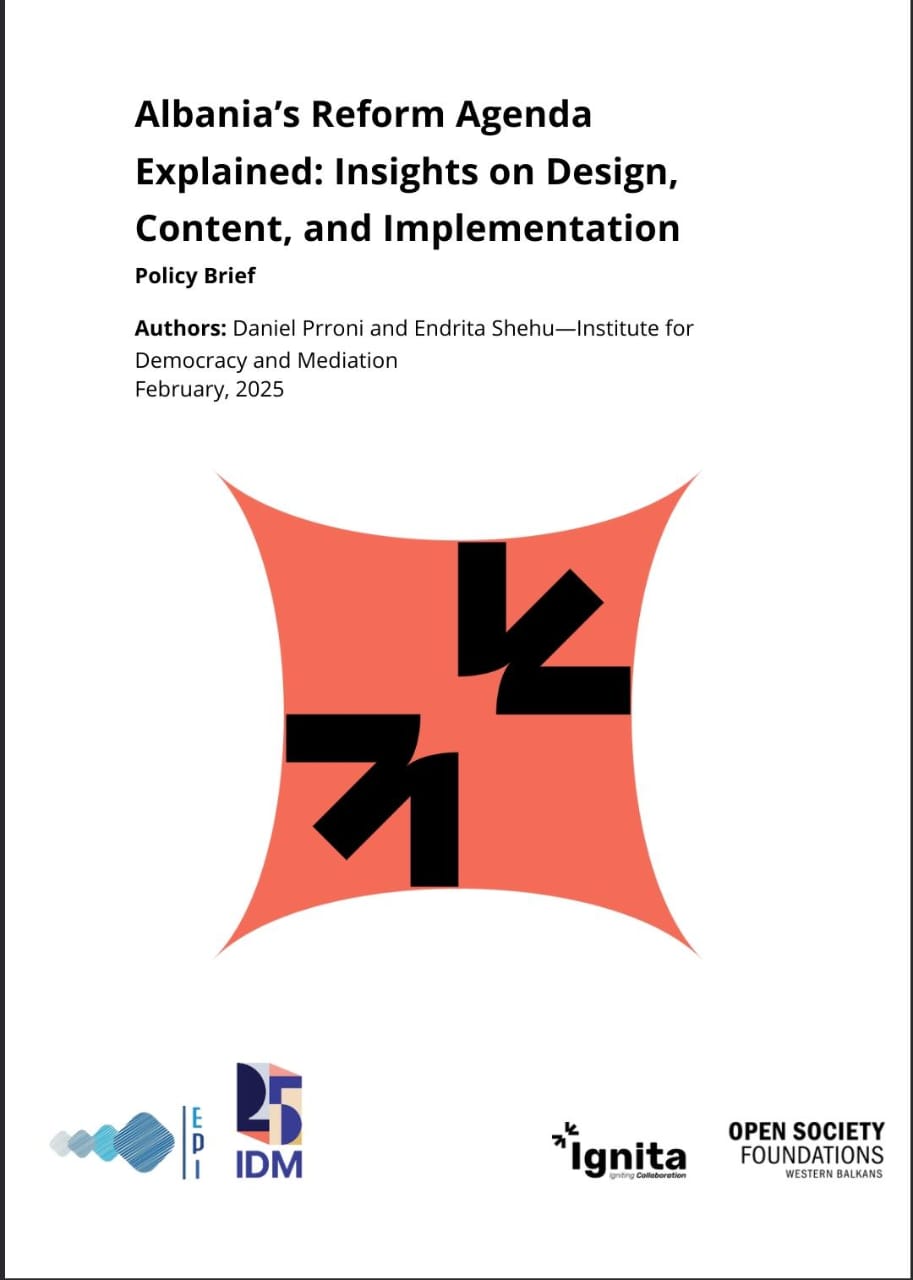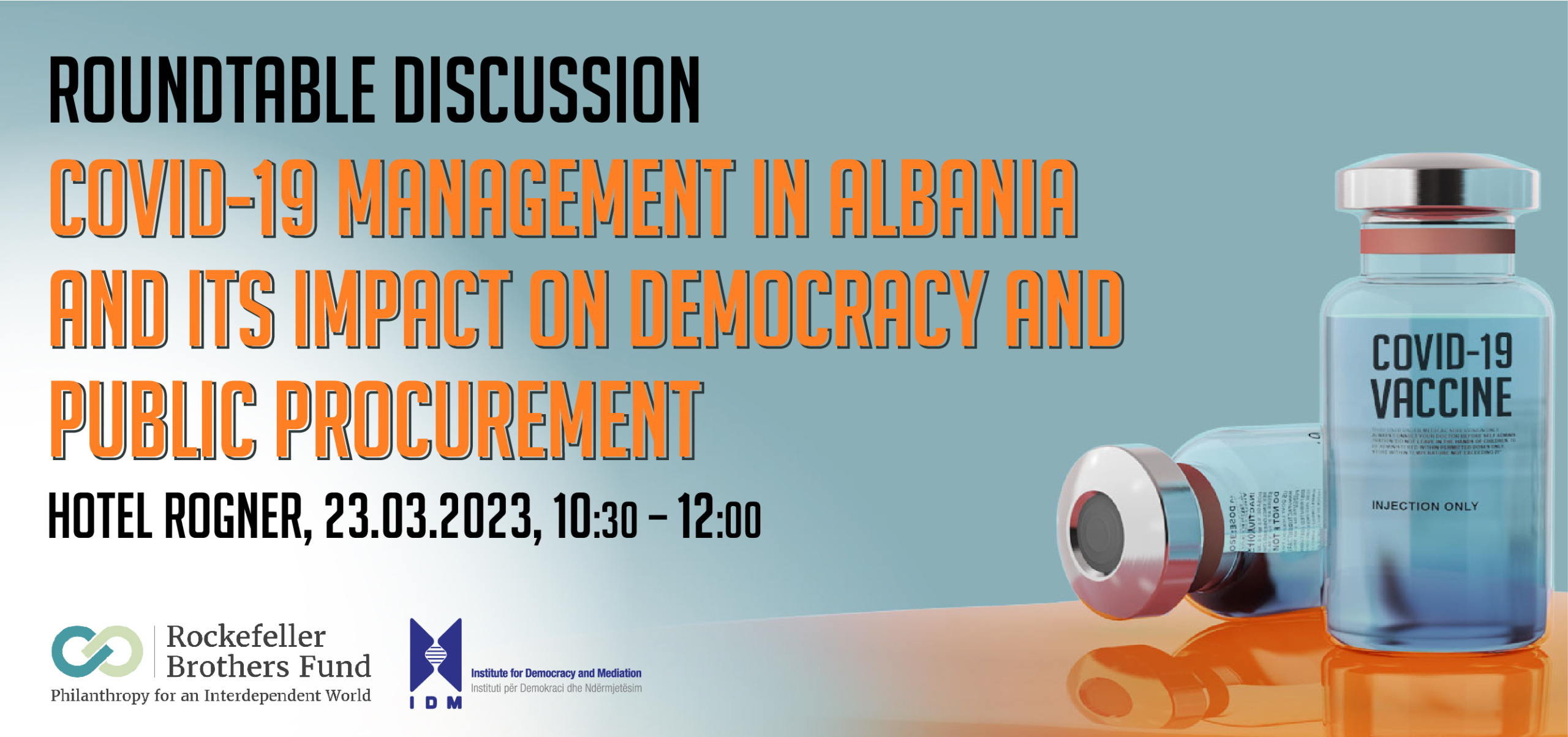[vc_row][vc_column icons_position=”left”][vc_single_image image=”46161″ img_size=”full”][vc_empty_space hide_on_wide=”” hide_on_desktop=”” hide_on_notebook=”” hide_on_tablet=”” hide_on_mobile=””][vc_column_text]The COVID-19 pandemic had a staggering impact to our societies, claiming human lives, and adding to the global economic, political, health and social challenges. As part of a regional project “Enabling Just Change in the International Health Care Governance COVID-19 Pandemic and Lessons Learned from the Western Balkans” IDM conducted research on the COVID-19 pandemic management in Albania. It specifically looked at how the government response affected the state of democracy in Albania, freedom of expression, and public procurement. It also looks how the pandemic affected other spheres in the country, including the life expectancy, employment; the healthcare system, the foreign policy, the disinformation campaigns, and the support of the international organizations to Albania. The COVID-19 pandemic is still not over and the possibility of new waves cannot be ruled out, nevertheless, most countries have lifted pandemic restrictions, as the perception of the health risk of the virus has changed, particularly for vaccinated populations.
About our speakers:
Ms. Aranita Brahaj, executive director of the non-profit organization Albanian Institute of Science and OpenProcurement Albania. Ms. Brahaj will speak on how the pandemic affected the public procurement in the country.
On 26 February 2020 the Albanian government amended the law on public procurement by allowing public institutions to contract companies without public bidding if those companies could provide the required services and goods in cases of urgent need (situations like the pandemic). The decision to declare all contracts as “essential interests of the state,” triggered warnings about the possible misuse of state funds, favouritism, suspected corruption and violation of public interests.
Mr. Lutfi Dervishi, renowned journalist and lecturer in Albania. Mr. Dervishi will speak on the government measures against the spread of the COVID-19 pandemic and their impact on the freedom of expression in the country. Mr. Dervishi will also cover the problem of conspiracies in the media.
The pandemic noticed a deterioration of the freedom of press in the country. Journalists did not have any restriction of movement like most of the citizens during the national lockdown, however, press conferences were inaccessible to them. As elsewhere, Albania was also affected by conspiracy theories in light of the pandemic.
Albania is assessed as the country with the highest number of supporters of COVID-19 conspiracy theories in the Western Balkans. A concerning issue for Albania in this regard is that such conspiracies were also promoted on popular TV channels in addition to social media and online portals.
Ms. Ardita Kolmarku, lawyer and project coordinator of the non-profit organization Albanian Helsinki Committee. Ms. Kolmarku will speak on the government measures against the spread of the COVID-19 pandemic and their impact on country’s democracy.
Albania introduced tough lockdown measures to prevent the spread of COVID-19. The measures imposed included, among others, curfew hours, administrative fines for breach of lockdown, quarantining and criminalization of breach of quarantine and intentional infection, and the use of police and military forces to enforce the measures. The Ombudsman raised concerns about democratic participation, freedom of movement and assembly, restrictions on the right to family life and privacy, and proactively promoted principles of legality and proportionality with regards to legislation in light of the pandemic.
Download the Agenda[/vc_column_text][vc_empty_space hide_on_wide=”” hide_on_desktop=”” hide_on_notebook=”” hide_on_tablet=”” hide_on_mobile=””][/vc_column][/vc_row]





